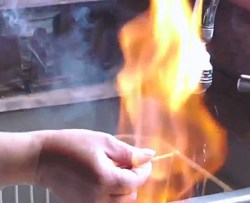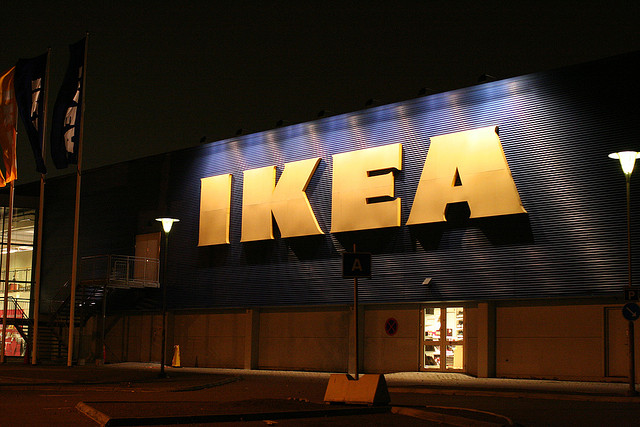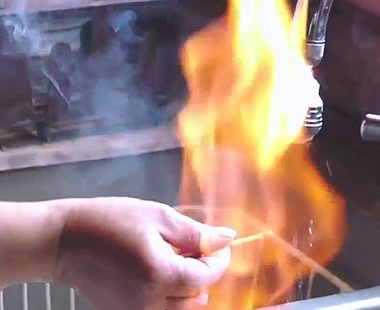
Flammable tap water still from Gasland.
Sixty-three percent of Americans don’t really know what fracking is. Which is, what? Mind-boggling? Unbelievable? What’s the description I’m looking for here?
The figure comes from a study conducted by the University of Texas, which asked this question: How familiar are you with the term “hydraulic fracturing” (sometimes referred to as “fracking”)? Thirty-two percent of respondents indicated familiarity; nearly everyone else was either not familiar or had never heard the term (which is a weird distinction).
Talking Points Memo (TPM), citing that report, indicated that they’d received a slightly different response from their readers. In 2010 and 2012, TPM asked readers how they felt about increased government investment in natural gas exploration.
The response: In 2010, 55.5% either agreed or strongly agreed and two years later 56.1% either disagreed or strongly disagreed. That’s a big difference. And the polarization also increased: substantially fewer people didn’t have an opinion.
The comparison is not one-to-one. TPM’s survey was just that, a survey, administered to a self-selecting population that is markedly more liberal than the general population. Likewise, TPM’s question was about government investment, not mere awareness. With those caveats, though, it’s clear that TPM saw a shift away from support for natural gas extraction.
In part, that’s likely due to stories like this one, from this morning’s New York Times:
For three years, [David Headley] and his wife, Linda, have wrestled with the land men, natural gas drillers and pipeline builders who are turning this very sleepy corner of Western Pennsylvania into an energy boom land. The farm Mr. Headley bought in 2006 for his semiretirement has become something of a nightmare. Gas wells leak. Drilling blowouts have spewed fine, chalky bentonite into trout-stocked Georges Creek, turning it a milky white. A spring where his wife’s three horses once watered now bubbles and belches. Touched with a flame, it will ignite. …
And last month, a dispute over an $11,000 payment for a pipeline right of way ended with state troopers, guns drawn, pouring out of 10 patrol cars and accusing Mr. Headley of criminal trespassing on his own land. A judge forced the gas company to pay the money — and slapped Mr. Headley with an injunction to keep 50 feet from the pipeline running through his property.
Not that such stories are new. (Remember Gasland?) But now they’re popping up in more and more places around the country as the mad rush to extract natural gas expands, especially in the Marcellus shale region.
Part of that rush is to take advantage of the fact that the process still enjoys a relatively low profile, outside of the bubble in which those of us who are concerned about it live our lives. As the Times describes, the feeling in Western Pennsylvania isn’t enthusiasm about a new business opportunity for the community.
“It’s the Wild West,” said C. J. Callahan, a 29-year-old banker in Point Marion, grabbing dinner with his wife and newborn baby at Apple Annie’s, just down the road from the Headleys. “There aren’t regulations. It’s just, get it out as quick as you can, because they’re going to do the regulations down the road.”
It is not the case that every fracking operation is heedless of the law and negligent in process. But anecdotes about what’s happening in regions where it’s booming are hard to ignore — unless you never hear them at all.
Regulation and reform can’t happen without political support. And political support can’t happen if people aren’t even aware that the issue exists. Some 201 million Americans still don’t.
Media Matters has a good explainer about natural gas that’s worth sharing with your 200 million closest friends.



